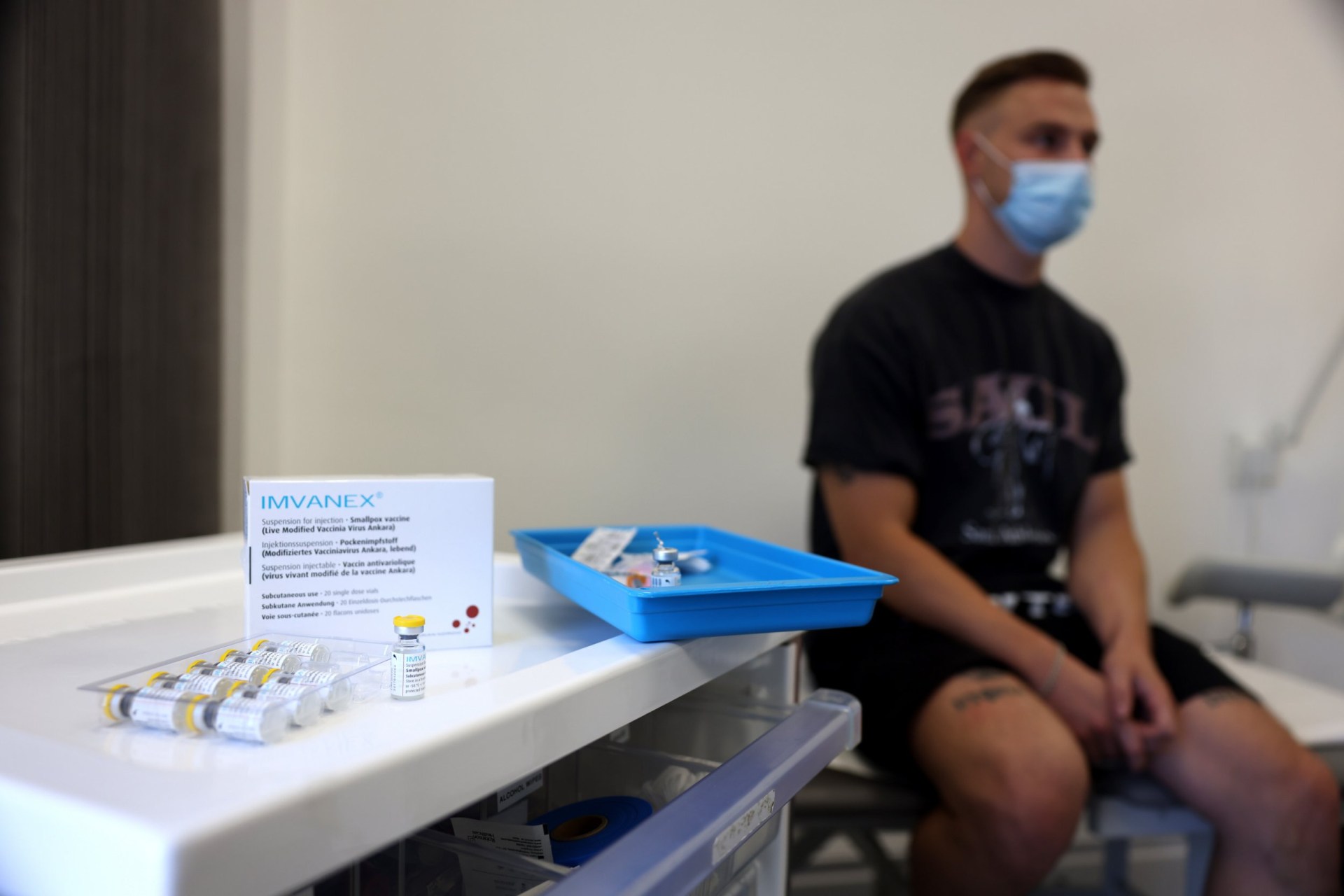
HOW DO YOU CATCH MPOX?
The World Health Organisation (WHO) has declared Mpox a global health emergency as scientists say they are alarmed by a new strain that is spreading.
Many of the cases are currently centred on the Democratic Republic of the Congo and neighbouring countries in Africa.
But this update now means that Mpox, previously known as monkeypox, is of international concern and constitutes a health risk to other countries around the globe.
Follow Metro.co.uk’s live blog for latest updates on Mpox
More than 500 deaths have now been recorded from it, leading to the Africa Centres for Disease Control and Prevention to call for international help to prevent its spread.
If left untreated, Mpox can be deadly – and the symptoms may vary from person to person.
What is Mpox?
Mpox spreads from animals to humans and between people through close contact with someone who is infected – including through sex, skin-to-skin contact and talking or breathing close to another person.
Symptoms may first appear as a high fever and headache, accompanied by muscle pains.
Those infected are also likely to have a lack of energy in the first five days after contracting the disease.
They might also include backaches, swollen glands, shivering, exhaustion and joint pain.
The most telling symptom is a rash, which appears usually 1 to 5 days after an infected person first experiences symptoms.
It often begins on the face before spreading to other parts of the body, but can be confused with chickenpox.
If you think you might have Monkeypox, call a sexual health clinic.
You have a rash with blisters, anal pain or bleeding from your bottom and have either:
- been in close contact, including sexual contact, with someone who has or might have mpox (even if they’ve not been tested yet) in the past 3 weeks
- had 1 or more new sexual partners in the past 3 weeks
- been to west or central Africa in the past 3 weeks
Stay at home and avoid close contact with other people, including sharing towels or bedding, until you’ve been told what to do.
Call a GP if your child has a rash with blisters and has
- been in close contact with someone who has or might have mpox (even if they’ve not been tested yet) in the past 3 weeks
- been to west or central Africa in the past 3 weeks
Is there a vaccine?
While there are no specific treatments for monkeypox, vaccination against smallpox has proven to be very effective.
Related Video
There is no direct cure for Mpox, but doctors aim to treat its symptoms, including clearing up the rash and managing pain.
It is spread through physical contact, such as kissing or sex, animals when cooking them, contaminated materials and pregnant women who can spread it to a fetus.
Get in touch with our news team by emailing us at [email protected].
For more stories like this, check our news page.
Get your need-to-know latest news, feel-good stories, analysis and more by signing up to Metro's News Updates newsletter
2024-08-15T08:20:54Z dg43tfdfdgfd